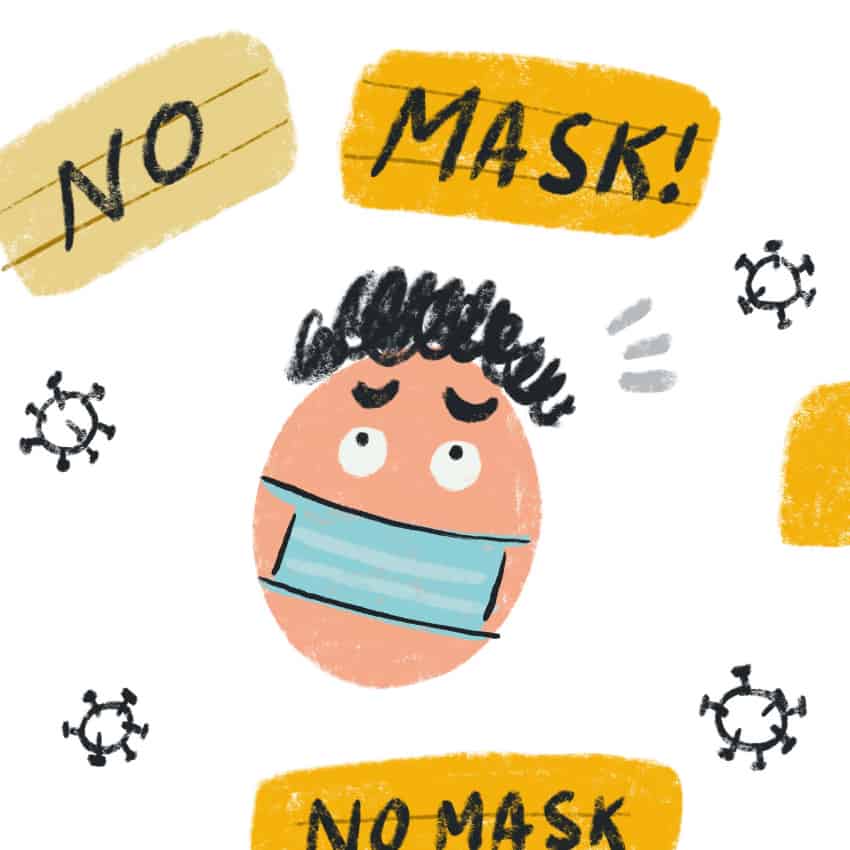
Science and critical thinking matter.
In August, on a walk by the river, I came upon a gathering of people enthusiastically shouting and thrusting signs with slogans like “My body, my choice” into the air.
Thinking it was a pro-choice rally, I continued to walk. Little did I know my masked and socially-distanced self would come under the scrutiny of the protesters. A man yelled something about masks not protecting our immune systems, and soon enough others began shouting about how “evil media” had indoctrinated mask-wearers.
I had come upon an anti-mask protest.
Not wanting to engage further with a large group of people using raised voices in a tight space — everything public health officials have told us not to do during this pandemic — I hurried along. However, the shock of the experience stayed with me for days.
It’s alarming to witness a group of people disagree so deeply with masks that they are willing to risk their own lives and that of others to make the point. But, while this extremism is extremely concerning, we should also be concerned about similar but more subtle behaviours.
These are two mindsets that I’m sure many of us have had the misfortune of encountering during this pandemic.
The first is the subtle science-doubter. This is the person who has access to resources and education, yet ignores what they learnt in school about the scientific method, the difference between viruses and bacteria, or the physics of particle spread.
Of course we can’t expect everyone to retain every piece of scientific information. That’s not the point — science is not only a body of facts. Nor is the problem asking questions, as curiosity and critical thinking are pillars of science.
However, rather than acknowledge that they might not know everything, and use their education to help others understand this crisis, they choose to, without any solid evidence, doubt science.
This kind of mindset manifests itself when people question public health guidelines without reason. As one of my peers also studying science said, to my great shock: “It doesn’t make sense that we have to both wear masks and social distance.” Alright, I’ll let the public health officials know that they should only present us with one course of action when responding to an unprecedented health risk. I get it, doing those two things, for the sake of our collective health, is just too much to ask for.
Even worse is when people’s doubts turn into a belief that the pandemic can’t affect them. As another one of my peers said, “I’m not worried about the pandemic.” Oh right, I may have forgotten to read the part in the manual on pandemics that says the virus only affects those who believe in it.
While this kind of behaviour is downright dangerous to the public’s trust in science, the second mindset — the passive information-consumer, as I like to say — is also bad. Rather than critically think about the information they consume, they accept it all. Whether that information has been carefully deliberated on by experts, is off the top of a family member’s head, or came in the form of a social media forward, doesn’t quite matter.
This results in people wearing masks but with their noses uncovered. And in people that believe in a vaccine, but simultaneously think that it will be ready in just a few months.
We should all seek information from a range of sources. However, in the age of instant information, how much knowledge we have at our fingertips is not the only thing that matters. Equally, we must know how and where it came about.
Science-doubters and passive information-consumers exist in part because of the lack of easily understandable COVID-19 information and guidelines — we must do better on that front. But the deeper problem rests with our education system that didn’t quite instil that science and critical thinking matter. We will have to fix that soon as well.
In the meantime, put on your science thinking caps on and mask up. The times demand that of us.
—
Vaidehee Lanke | Culture Editor
Graphic: Anh Phan | Design Editor
Leave a Reply